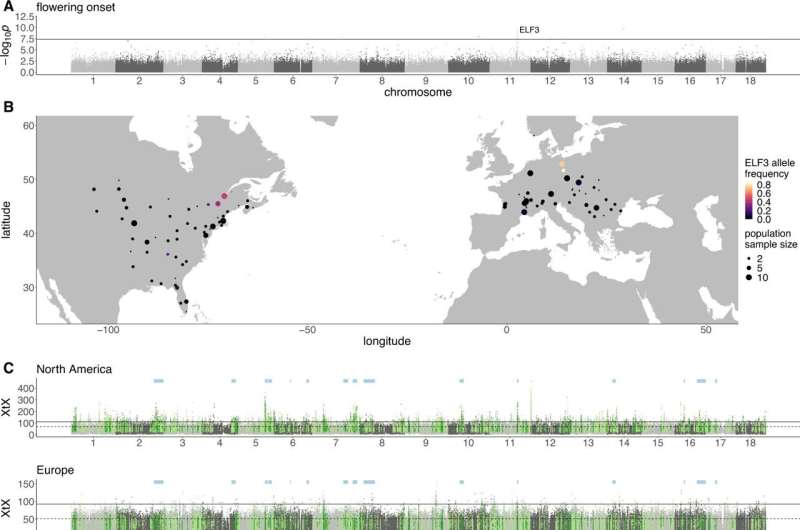This article has been reviewed according to Science X's editorial process and policies. Editors have highlighted the following attributes while ensuring the content's credibility:
fact-checked
peer-reviewed publication
trusted source
proofread
Supergenes power invasive species' success, study finds

Common ragweed, a pest and a major cause of hay fever, is a successful invasive species because it uses "supergenes" to adapt, an international study led by Monash University has found.
Ragweed is an invasive species on most continents including Australia and it's able to rapidly adapt to a range of environments.
Researchers from the School of Biological Sciences investigated the features of its genetic code to understand what made it so successful. The results of the study were published on March 27 in Nature Communications.
"One of the most exciting and unexpected findings of our study was the number and evolutionary importance of large supergenes in ragweed," said senior study author Dr. Kathryn Hodgins.
"These supergenes encompass very big chunks of the ragweed genome," she said.
"The Common ragweed is able to rapidly invade diverse environments using supergenes which affect traits, like plant size and flowering time which are critical for ragweed's survival and reproduction in different climates."
The research team sequenced the DNA of over 600 ragweed plants from North America (where ragweed is native) and Europe (where ragweed has invaded over the last 200 years).
Some of the plants they used in the study were collected from the field recently, but others were museum specimens collected as long as 190 years ago.
Working with DNA from museum specimens requires specialized equipment and expertise, so the research team collaborated on this project with ancient DNA experts from NTNU in Norway.
"This project has been so exciting because we were able to compare DNA from the past and present and directly observe the evolutionary changes that have occurred as common ragweed adapted and spread across Europe," said study first author Dr. Paul Battlay, from Monash University.
"We need to control invasive species and predict their spread to mitigate their damaging effects on our local biodiversity, economy and our health," he said.
"Identifying the DNA changes that allow invasive species to be successful gives us another weapon in our arsenal against these challenging pests."
Study first author Jonny Wilson, a Ph.D. candidate at Monash, said when he started his Ph.D. he was particularly interested in identifying structural variants such as supergenes in invasive plants, which have until recently been difficult to detect due to technological constraints.
"I wasn't quite sure what to expect at first, but discovering the magnitude and importance of the role of supergenes has been well beyond what I had hoped to find," he said.
More information: Paul Battlay et al, Large haploblocks underlie rapid adaptation in the invasive weed Ambrosia artemisiifolia, Nature Communications (2023). DOI: 10.1038/s41467-023-37303-4
Journal information: Nature Communications
Provided by Monash University


















